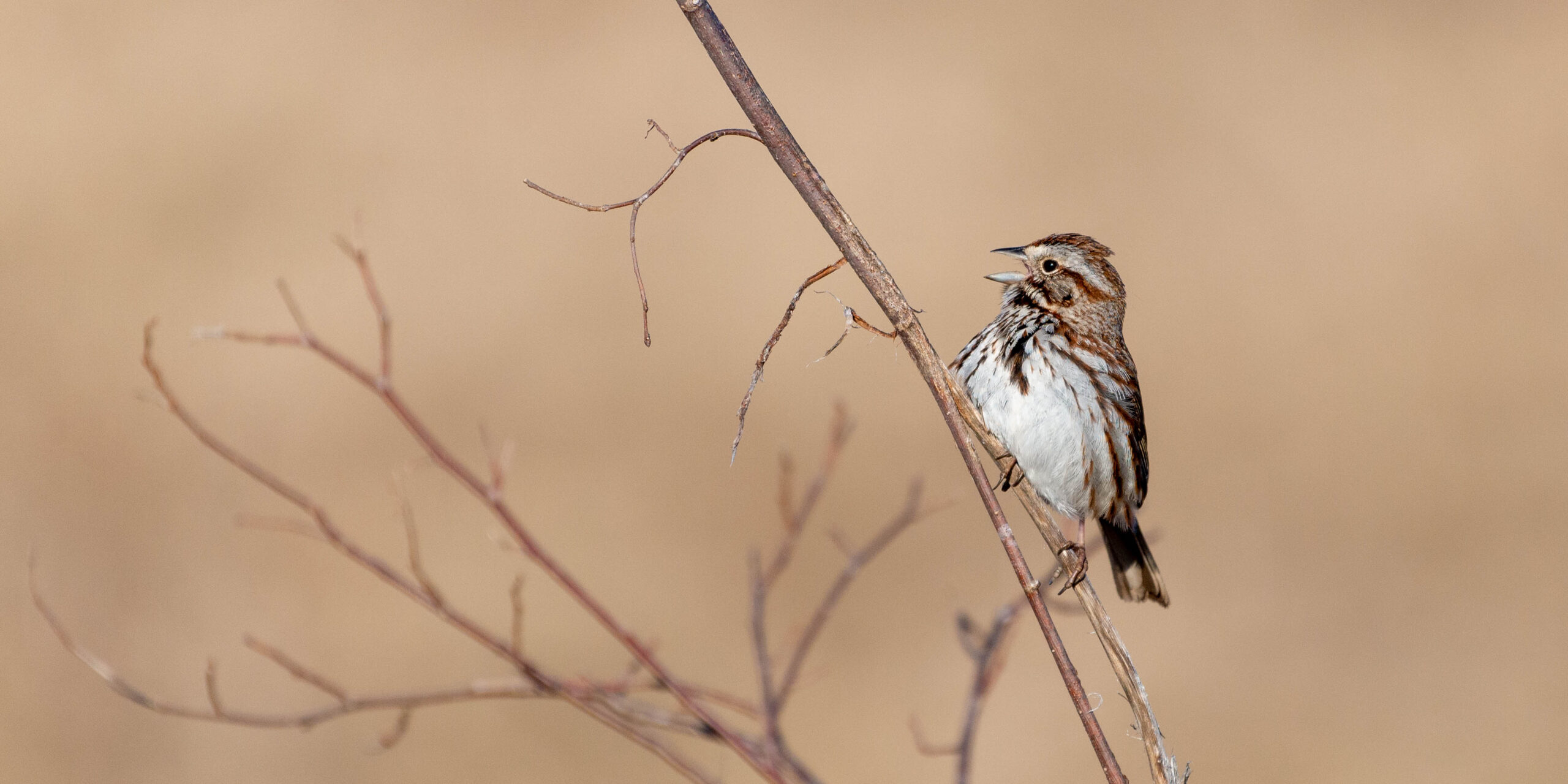Originally published 28 October 2003
I have a friend who talks to birds. When I accompany him on early-morning walks, he’ll stand beside a pond or weed patch and make little tsk-tsk noises that to my untrained ear don’t sound particularly birdlike. Nevertheless, soon a flitter of warblers and sparrows appears seemingly out of nowhere.
Does my friend communicate with the birds in a linguistically meaningful way (“I am here. Where are you?”)? Or are the birds merely responding with curiosity to any nonthreatening disturbance of the morning quiet?
I don’t know the answer, but it is certainly an interesting question, and it goes to the heart of our relationship — and obligations — to other species. And so it was with some enthusiasm that I picked up a book called Bird Talk: Conversations With Birds, by Alan Powers.
Powers teaches English at Bristol Community College in Fall River, Massachusetts. He is an avid birder, scholar, poet, and knowledgeable musician, all of which he brings to bear on his topic. His little book doesn’t provide definitive answers to the deepest questions about animal communication, but it leaves the reader in no doubt that a real, two-way communication with birds is possible.
There are a couple of prerequisites, however. The first is silence. If my friend’s whispered tsk-tsks are any indication, it would be difficult to talk to birds with our usual aural background — traffic noise, airplane noise, chain saws, leaf blowers, all-terrain vehicles, snowmobiles. One thinks of Thoreau sitting by his cabin at Walden Pond, listening to the birds and trying out an avian phrase or two himself. Then the Fitchburg train goes clattering by, not 800 feet away, and bird song is obliterated.
Silence is one reason why birders — and maybe birds, too — prefer the early-morning hours, before human commerce begins; and why birders look with such puzzled disbelief at the walkers and joggers we meet in morning meadows with music players clipped to their belts and earphones covering their ears.
A second prerequisite is patience, which is probably why I have so few conversations with birds. My birding friend is a person of gentle, attentive demeanor. Just walking with him slows me down, focuses my attention. But I suspect my twitchy presence has exactly the opposite effect on him, and on his opportunities for ornithological chat.
Alan Powers would appear to be a person of attentive demeanor, too — attentive enough to hear and transcribe birdsong into musical notation. He is not the first ornithologist to grace his book with five-line staffs and notes — F. Schuyler Mathew’s did it nearly a century ago in his Fieldbook of Wild Birds and Their Music—but Powers does it with such professional flair that the songs almost trill off the page.
It is great fun to read of Powers trying to teach a bit of Mendelssohn’s “Italian Symphony” to a titmouse, or the famous theme from Beethoven’s “Fifth Symphony” to an oriole. What is astonishing is that he has some apparent success. This may be because some birds are skilled mimics, or it may be that human music has a deeper connection to birdsong than many scientists are willing to concede.
When a parrot in a cage says “Polly wants a cracker,” I doubt if much is going on that could be called interspecies communication, but when Powers hears a quarter-note variation in a bird’s song and interprets it as a change from “Stay away” to “Come hither,” I’m inclined to believe that he has heard and understood something the bird has said.
Scientists spend a lot of time teaching experimental animals to run mazes and and other tricks of pseudo-human behavior; we force the animals into a human template, rewarding them with food when they conform or zapping them when they fail. It may be that we have more to learn from them than they have to learn from us.
It is good to know there are people like Powers listening to the creatures. Others like him — gentle and attentive — have made the effort to understand the language of primates, whales, dolphins, even bees. Conversation — real conversation — implies a measure of equality, responsibility, love.



